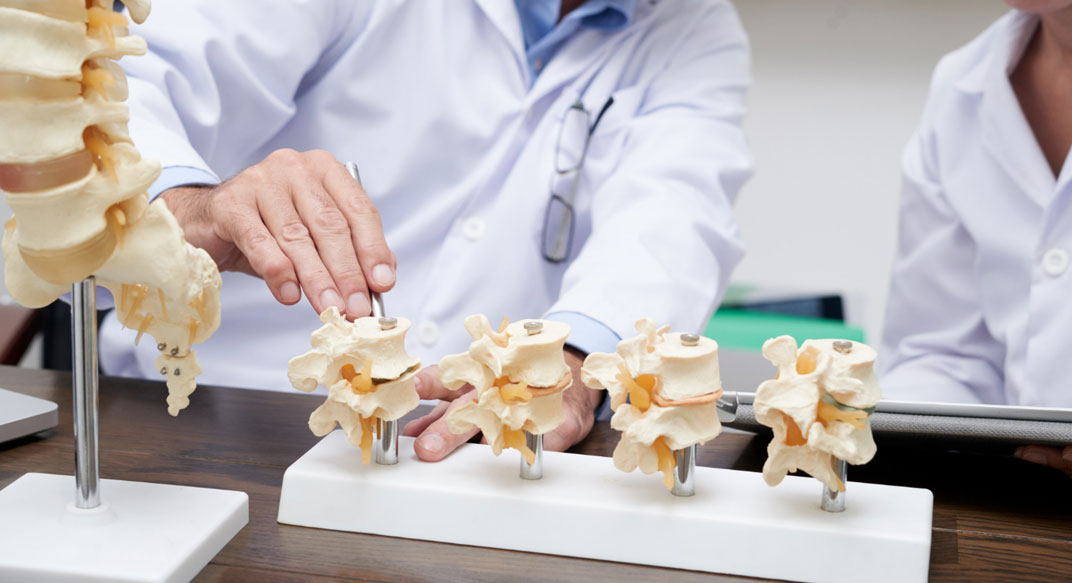Tips for a Healthier Spine: Simple Ways to Improve Spinal Health

Maintaining a healthy spine is crucial for overall well-being and mobility. Whether you're sitting at a desk all day or engaging in physical activities, taking care of your spine can help prevent pain and reduce the risk of spinal conditions. Here are some simple tips to promote a healthier spine:
Practice Good Posture:
Maintain proper posture while sitting, standing, and walking. Sit up straight with your shoulders back and avoid slouching to prevent strain on your spine.
Stay Active:
Engage in regular exercise to strengthen the muscles that support your spine. Activities like walking, swimming, and yoga can help improve flexibility and reduce the risk of back pain.
Lift Properly:Use proper lifting techniques to protect your spine from injury. Bend your knees and keep your back straight when lifting heavy objects, and avoid twisting your spine while lifting.
Take Breaks:If you sit for long periods, take frequent breaks to stretch and move around. Set reminders to stand up, stretch your back, and walk around every hour to prevent stiffness and promote circulation.
Use Ergonomic Equipment:Use ergonomic chairs, desks, and computer setups to support your spine and maintain good posture while working. Adjust your workspace to minimize strain on your neck and back.
Sleep Well:Invest in a supportive mattress and pillow to maintain proper spinal alignment while sleeping. Avoid sleeping on your stomach, as this can strain your neck and back.
Maintain a Healthy Weight:Excess weight can put pressure on your spine and increase the risk of back pain and spinal conditions. Eat a balanced diet and exercise regularly to maintain a healthy weight and reduce strain on your spine.
Quit Smoking:Smoking can decrease blood flow to the spine and hinder the body's ability to heal, increasing the risk of spine-related problems. Quitting smoking can improve spinal health and overall well-being.
Stay Hydrated:Drink plenty of water to keep your spinal discs hydrated and flexible. Dehydration can lead to reduced disc height and increased risk of disc-related issues.
Reduce or eliminate inflammatory foods:It is advisable to avoid consuming foods that cause inflammation, such as dairy, red meats, refined sugar, and other processed foods. Instead, opt for healthy anti-inflammatory food choices, such as plant-based foods that are naturally low in calories and can also help to discourage excessive weight gain.
Listen to Your Body:Pay attention to any signs of discomfort or pain in your spine and seek medical attention if you experience persistent or severe symptoms. Early intervention can prevent minor issues from developing into more significant spinal problems.
By incorporating these simple tips into your daily routine, you can promote a healthier spine and reduce the risk of spinal conditions and back pain. Remember to prioritize your spinal health and make conscious choices to support a strong and resilient spine for years to come.
As a cornerstone of the body's structure, the spine plays a critical role in our mobility and strength, making understanding the intricacies of low back pain essential for maintaining spinal health. This article delves into the causes, risk factors, and treatment options available for low back pain, providing a comprehensive guide for those seeking relief and prevention strategies.
For personalized advice and consultation on any brain and spine-related concerns, it is strongly recommended to seek the expertise of a qualified medical professional. We encourage you to consult with Dr. Adarsh Patel, a best neurosurgeon in ahmedabad for their expertise in addressing various neurological and spinal conditions. Dr. Adarsh Patel possesses a wealth of experience and is committed to providing comprehensive and individualized care to patients. To schedule an appointment or seek further guidance, please contact Dr. Adarsh Patel directly Click Here. Your health is of utmost importance, and consulting with a specialist ensures that you receive accurate information tailored to your specific needs.
To Know more about Pituitary Adenoma: Symptoms, Causes, Risk Factors, and Treatment: Read More
Understanding Subdural Hematoma: Causes, Symptoms, Treatment, and Prevention: Read More
Read all articles realted to brain and spine problems: Read More
Disclaimer: The information provided in this article is for general informational purposes only and is not intended as, nor should it be considered, a substitute for professional medical advice. Do not use the information on this website for diagnosing or treating any medical or health condition. If you have or suspect you have a medical problem, promptly contact your professional healthcare provider.
